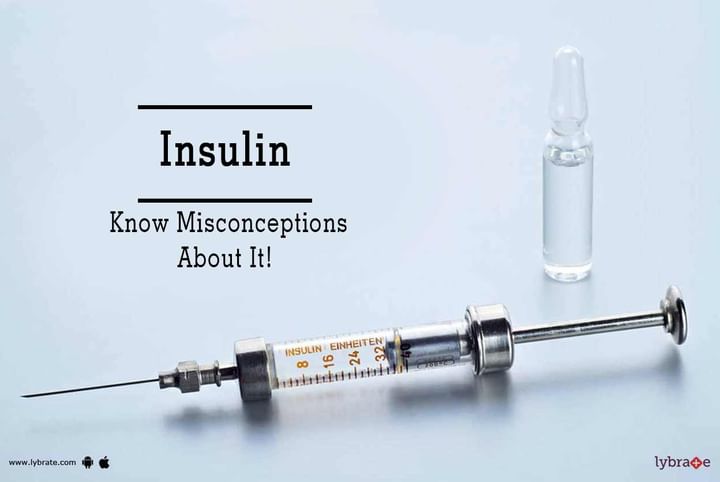Insulin - Know Misconceptions About It!
Hormones are responsible for regulating the functions of the body, growth and metabolism. There are a variety of hormones that the endocrine glands secrete, and one of them is insulin. Insulin is responsible for regulating the blood sugar levels in the body. If it’s not produced enough or the body’s capability to absorb it weakens then it can lead to diabetes. Insulin is also related to metabolism and the storing of fat, insulin breaks down the glucose in the blood to provide energy for the proper functioning of the body. Thus, insulin is an important component in the construction of the body but its dysfunction can cause a series of problems for the body, some very permanent ones like diabetes. Thus, it’s important to know exactly how it functions and not pay heed to the myths surrounding it and base your opinions on hard facts. Here are some common myths regarding insulin, and the facts that you need to know:
- It’s the final step in the treatment: Insulin is not the final step in the treatment, it is made to be so because of the myths surrounding its use. It is actually a wrong conception that people harbour thereby delaying the use of insulin and causing more damage. Controlling the blood sugar level need to begin as soon as possible otherwise, there can be complications since blood sugar, in more than the prescribed amount, is highly toxic for the body. It can lead to heart attacks or even strokes.
- You will gain weight due to insulin: This is partially true but it is not due to insulin use, in fact, it is the because insulin is working for you, your blood sugar levels start to normalize and you gain a bit of transient weight. Abnormal weight loss is usually a sign that you might have diabetes.
- Taking insulin is a sign of defeat: This is the biggest myth that exists and the reason why the treatment with insulin is started late or is delayed. You can take the best care of your body and follow through with all the regimens prescribed to you by your doctor and yet require insulin shots. It depends solely on how damaged the pancreas is and unable to produce the required amount of insulin. The need for medication varies and should not be seen as a sign of defeat.
- Insulin injections are painful: This is absolutely false and a scare tactic that has been employed as an additional negative trait of insulin use. Insulin needles are fine and thin and they are injected into the layer of fat underlining the skin where there are no pain receptors so it is improbable that insulin injections are painful.



+1.svg)
